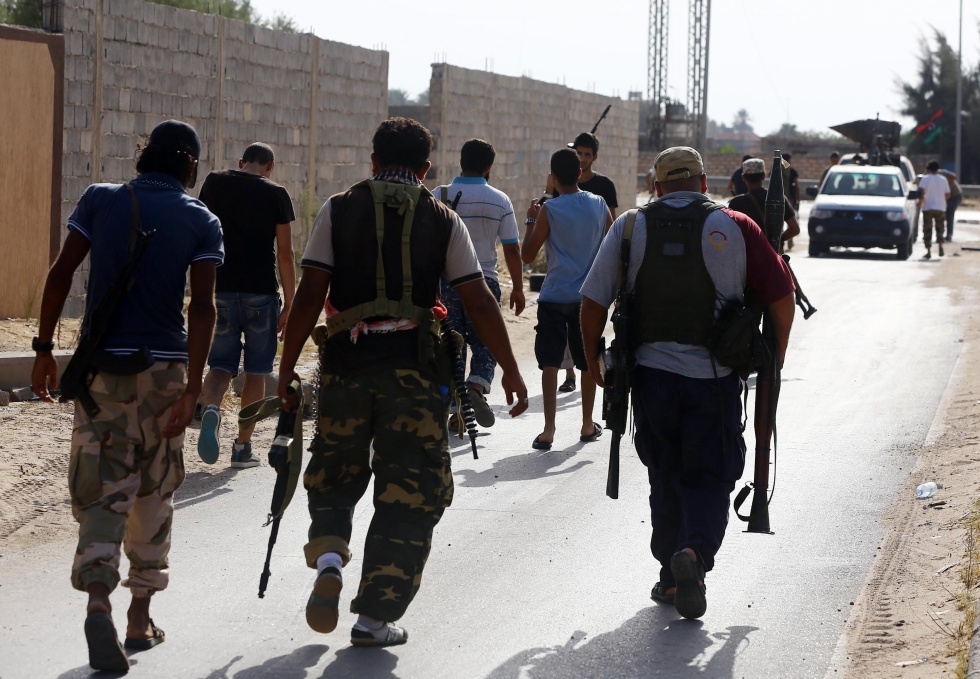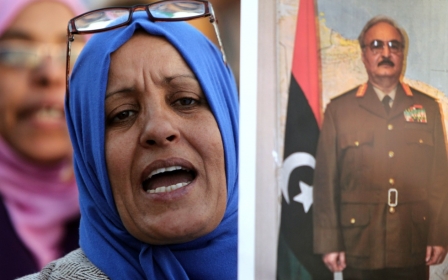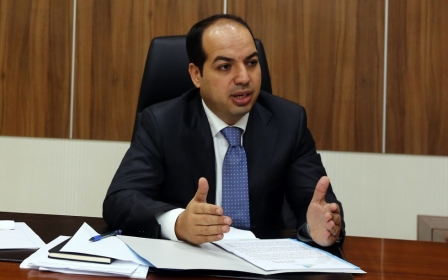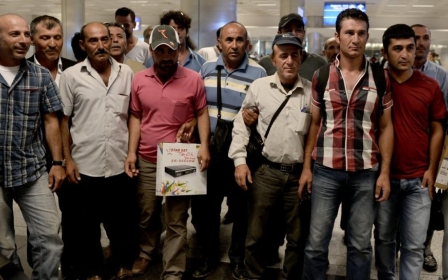Libya recalls 7 ambassadors for recognising Islamist government

Libya’s House of Representatives (HoR) in Tobruk has recalled seven ambassadors, after they recognised the Islamist-controlled government in Tripoli.
The Libyan ambassadors to Turkey, Jordan, Sudan, Kuwait, Belarus and Serbia are among those recalled after declaring support to the General National Congress (GNC) in Tripoli, a senior source in Libya’s Foreign Ministry confirmed to the Libyan news site al-Wasat.
The House of Representative also decided to recall its ambassador to Egypt, Mohammed Faiz al-Jibril, but this was apparently not a result of his recognition of the GNC, according to al-Wasat.
Mattia Toaldo, a visiting fellow at the European Council on Foreign Relations, said the HoR's move was not surprising.
“The Tobruk government is the internationally recognised government and it cannot afford to have ambassadors who do not answer to it,” Toaldo told Middle East Eye.
He said that the decision was a sign that the HoR was concerned about its international diplomacy.
“I don’t know how much this affects Libya’s standing overseas, but I think the international community has realised that one of the first places where Libyans fight their battle is in the embassy,” he said.
"If you think of 2011, one of the main battles was about who represented Libyans at the UN.”
Toaldo told MEE that the fact that most of the ambassadors were Middle East-oriented suggested Tobruk was concerned about regional actors.
“This may be simply that, given the importance that the Tobruk government assigns to relations with the outer world, they want to have trusted people and not have people who were appointed there by [Former Prime Minister] Zeidan or others,” he told MEE. “They probably don’t trust those ambassadors.”
The recalls come as Abdullah al-Thinni - recognised as the country's Prime Minister by the HoR - is in the United Arab Emirates where he denied reports that he had collaborated with Egypt and the UAE to conduct air strikes against Islamist positions in Tripoli. The New York Times has reported that Egypt and the UAE secretly launched air strikes in the Libyan capital in late August with US knowledge.
“I am absolutely sure that Egypt and the UAE are not implicated in this and that there is no evidence,” Thinni said during a meeting with Sheikh Mohammed bin Zayed, Crown Prince of Abu Dhabi and Deputy Supreme Commander of the UAE Armed Forces. “Whoever has evidence should present it to us.”
Thinni also confirmed that he was working to secure the release of Libyan nationals taken into custody in the UAE.
“Our embassy has undertaken all legal measures and I trust the UAE judiciary,” he said.
“If they are guilty, they will be given due process. If they are innocent, we most definitely trust the UAE judiciary and the UAE government, and we trust that they will be set free,” he said.
Pro-Islamist sources claimed as many as thirty people were being held in the UAE, though Thinni has claimed it is only seven.
The rival governments in Tripoli and Tobruk have raised fears of civil war in Libya, which has been rocked by instability since the overthrow of dictator Muammar Gaddafi in 2011 during the Arab Spring protests.
New MEE newsletter: Jerusalem Dispatch
Sign up to get the latest insights and analysis on Israel-Palestine, alongside Turkey Unpacked and other MEE newsletters
Middle East Eye delivers independent and unrivalled coverage and analysis of the Middle East, North Africa and beyond. To learn more about republishing this content and the associated fees, please fill out this form. More about MEE can be found here.




